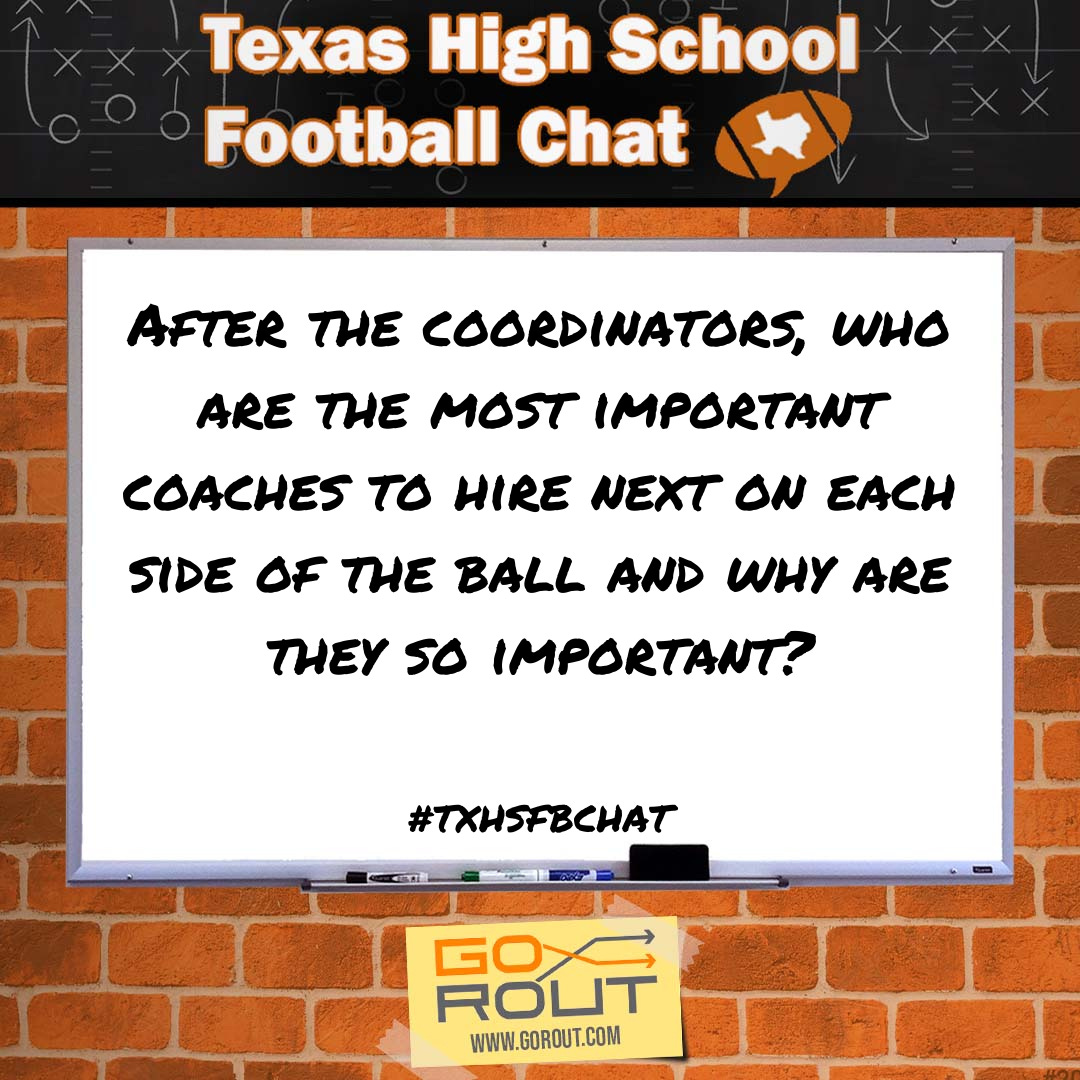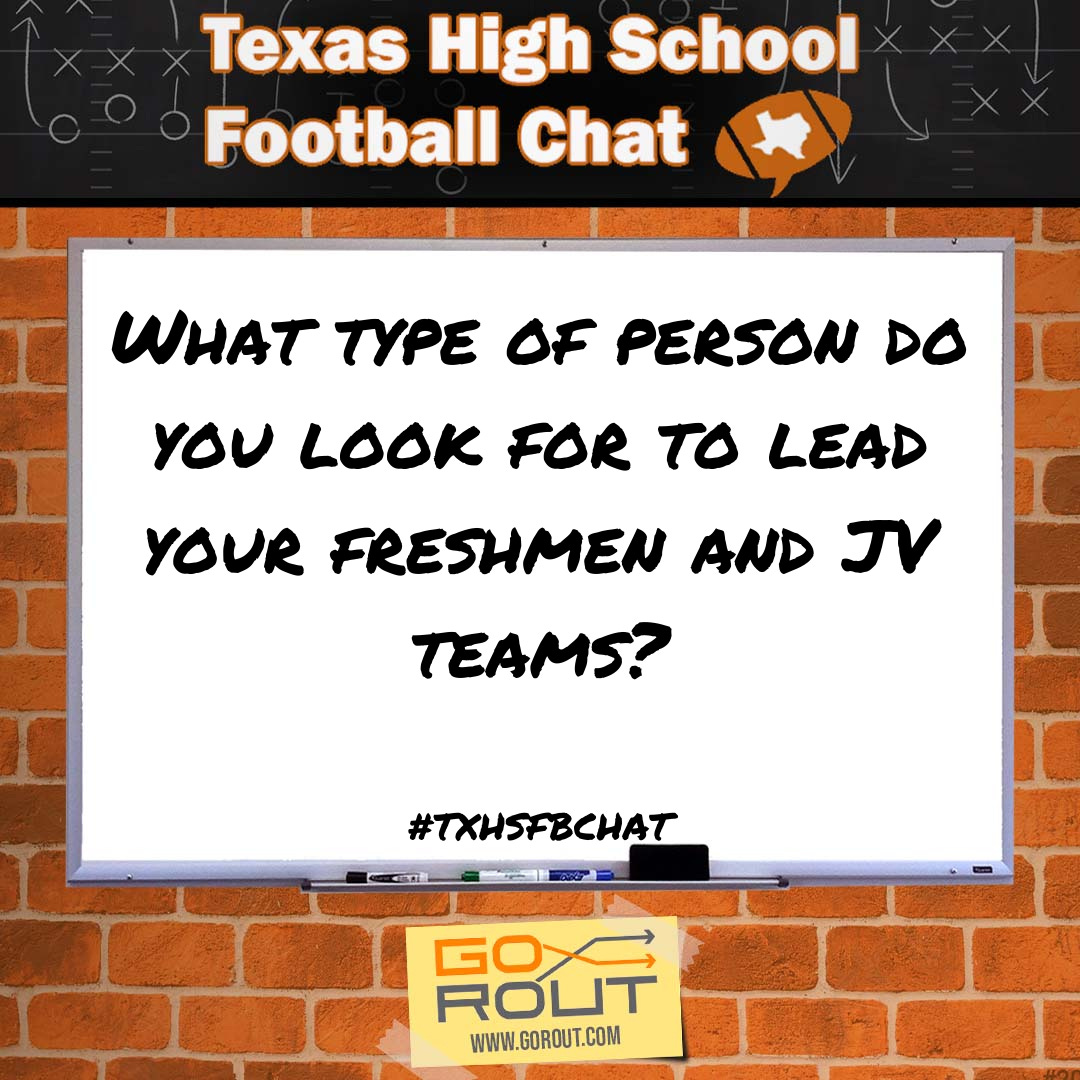If you have ever been part of a great coaching staff, you know how remarkable it is. These men you work with become a family. You enjoy being together, and share the highs and lows of your teams and seasons. Each of us supports the other through thick, and thin. Good relationships are built by the natural energy that connects the individuals involved. Family is bonded by this energy. You know it’s good, because you look forward to the charge you get with each gathering.
The coaching staff can make or break the success of the team. As much as we rely on the performance of our players, our players rely on coaches to teach them and lead them through the game of football. The coaches on staff help set the tone for the rest of the program because they are the people who are directly engaging with the players every day. They also help spread and reinforce the desired culture, established by the head coach. One of the greatest challenges a head coach faces is hiring the right coaches to fill this role. It requires a good judge of character, thoughtful interviewing, and trust.
There are circles within a coaching staff. Not cliques. Circles. This is an important distinction, and one that younger coaches, and new coaches to the staff need to understand. A head coach needs his go to guys, the coaches and friends on staff who he can talk through decisions, both personal and professional, before bringing them to the attention of the rest of the staff. It is important for the rest of the staff to understand this, work together, and trust the head coach and his decisions. It is even more important for the head coach to not abuse this trust. A head coach cannot withdraw himself so much from the whole staff that he ends up isolating himself, and thereby ignoring their needs. There must be a continuity and flow of information that provides the whole staff insight into the direction the program will go.
To operate within a coaching staff, the individual members must set aside their ego. The goals of the program, and the best interests of the people involved are the top priorities that guide us. Start by embracing your position on staff. Your assignment is important, and you have been put there for a specific reason. The way a coach approaches his responsibilities shows their commitment to the head coach, and to the team. Understand that you will share your thoughts and some will be accepted, while many ideas will be turned down. Keep bringing your ideas. A good coaching staff consists of people willing to share freely and openly, with no fear of rejection. This is how coaches learn from each other, and how we work together to build the program.
A good coaching staff can work together and produce successful teams. I believe the difference between a good and a great staff is the togetherness in and out of the office. A good team can set aside differences during the time they have to be together to perform their job. A great team celebrates those differences, and enjoys being around each other whether they are at work or away.
I have been fortunate to be on a great coaching staff twice during my career. Both staffs were filled with coaches who are passionate about the profession, and had a great time with each other. We always say that the best thing we do as coaches is build relationships with our kids. Well, the best thing we can do professionally is build relationships with each other. The more fun we have with each other, the more fun we have going to work together.
A great coaching staff is built not just on a commitment to the program, but a commitment to each other. I have formed great friendships with coaches I have shared the office with. Our families know each other, our kids have grown up together, and we have been together for a lot of ups and downs. Not only did we mesh, but we were able to set aside our egos, and personal goals to build something special.
Two questions stood out regarding building the coaching staff:
After the coordinators, who are the most important coaches to hire next on each side of the ball and why are they so important?
Most coaches will say the offensive line coach is the most important assistant to hire. The consensus belief is that the game is won or lost in the trenches. How each opposing line performs against the defense can make or break a team. The way the line plays sets the tone, no matter what offense you employ. If you are a ground and pound team, your OL better be able to push people around. If you are fun and gun team, your OL better be able to protect.
What type of person do you look for to lead your freshmen and JV teams?
The most consistent response to this question includes two types of coaches. One choice would be a young coach who you see has the potential, the characteristics, and the desire to be a head coach. Someone who creates buy-in to the program through the energy and enthusiasm, but also can organize and manage the growth and development of these young athletes. Another option is a seasoned, veteran coach. Someone you know and trust with strong knowledge of the game. Someone who has the ability to establish the desired culture in these younger players and teach them the benefits of playing football.
The challenge of staff building is keeping a good staff together. You build up your coaches so they are prepared to leave, at the same creating an environment that makes them want to stay.
Coaches move on. That’s part of the profession. I don’t know what it is that ends up keeping a coaching staff together for long periods of time. It’s not just about the head coach. It’s not just about the school and their success. It does have something to do with the relationship we share with each other, and some sort of magical dust sprinkled on top. That’s really what it is all about.
Great relationships, and the unknown thing that keeps us together as long as possible.
Thanks so much for reading! If you enjoy these newsletters, I would greatly appreciate it if you share them with others who may also receive value from these topics!





